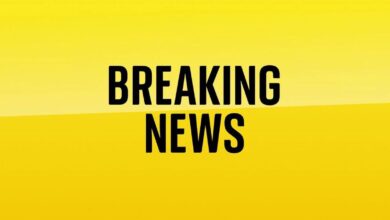South Korea parliament majority votes to impeach acting president Han

By Joyce Lee and Jack Kim, Reuters
South Korea Prime Minister and acting President Han Duck-soo speaks in his address to the nation at the Government Complex in Seoul on 26 December 2024.
Photo: AFP
A majority of South Korea’s parliament voted on Friday to impeach acting president Han Duck-soo.
Prime Minister Han has been acting president since President Yoon Suk Yeol was impeached on 14 December over his short-lived imposition of martial law on 3 December, and his presidential powers were suspended.
After Han’s impeachment, Finance Minister Choi Sang-mok is next in line to assume the acting presidency, according to South Korean law.
Some 192 lawmakers voted to impeach Han out of the 300-member parliament.
The main opposition Democratic Party (DP), which controls parliament, decided to impeach Han after he did not immediately appoint three justices to fill vacancies at the Constitutional Court.
The DP-controlled parliament backed three nominees on Thursday, but Han said he would not formally appoint them unless there was bipartisan agreement on the appointments.
There has been disagreement between the ruling and opposition parties and some constitutional scholars over whether a simple majority or a two-thirds vote is needed to impeach the acting president.
However, parliament speaker Woo Won-shik, who is from the DP, said only a simple majority was needed to impeach Han.
If Han is suspended, Finance Minister Choi Sang-mok will assume the acting presidency by law.
Lee’s pledge to remove Han came minutes after Choi warned that impeaching the acting president would seriously damage the country’s economic credibility and asked political parties to withdraw the plan.
“The economy and the people’s livelihoods are walking on thin ice under a national state of emergency and it cannot cope any greater political uncertainty that will result from another acting president assuming the acting presidency,” he said.
Choi spoke for the country’s cabinet, flanked by ministers.
The South Korean won weakened to a fresh low of 1,486.7 per dollar on Friday, the weakest since March 2009, as analysts said there was little to reverse the negative sentiment stemming from the political uncertainty.
The vote to determine Han’s fate comes on the same day the Constitutional Court held its first hearing in a case reviewing whether to overturn the impeachment and reinstate Yoon or remove him permanently from office. It has 180 days to reach a decision.
Speaking for the court in a preparatory hearing, Justice Cheong Hyung-sik said the court will move swiftly on the case considering its gravity, denying a request by Yoon’s lawyers for a postponement in proceedings to better prepare the case.
In the hearing that wrapped up under an hour, the court set the next hearing for 3 January.
Yoon Kap-keun, one of the lawyers representing the impeached president, later told reporters the legal team is still adding members and that Yoon himself plans to appear in person in the future.
The hearing follows weeks of defiance by Yoon ignoring requests by the court to submit documents as well as summons by investigators in a separate criminal case over his martial law declaration.
Yoon was not required to attend Friday’s hearing. If he ousted, a new presidential election would be held within 60 days.
Worst political crisis in decades
The events following the 3 December martial law declaration have plunged the country into its gravest political crisis since 1987, when widespread protests forced the ruling party of former military generals into accepting a constitutional amendment bringing in direct, popular vote to elect the president.
The turmoil has also spilled over into financial markets.
Yoon shocked the country and the world with a late-night announcement that he was imposing martial law to overcome political deadlock and root out “anti-state forces”.
The military deployed special forces to the national assembly, the election commission, and the office of a liberal YouTube commentator.
It also issued orders banning activity by parliament and political parties, as well as calling for government control of the media.
But within hours 190 lawmakers had defied the cordons of troops and police and voted against Yoon’s order. About six hours after his initial decree, Yoon rescinded the order.
Yoon and senior members of his administration also face criminal investigations for insurrection.
– Reuters




